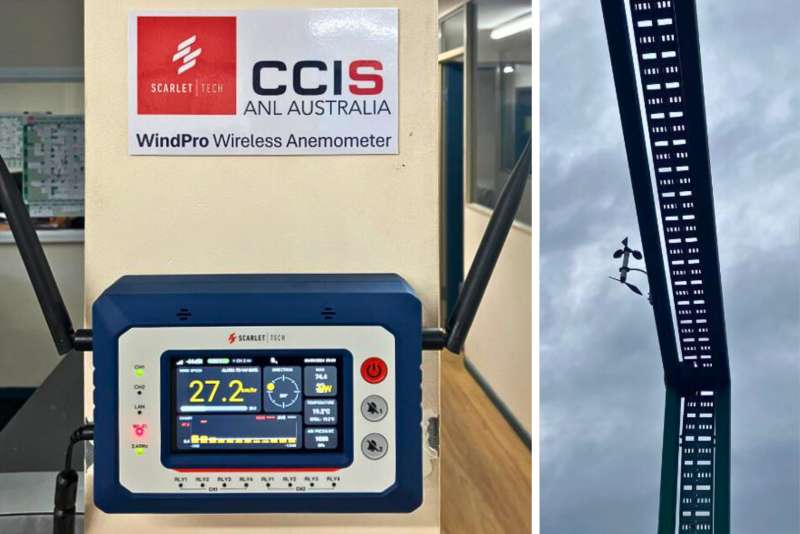Case Study – WindPro
Hassle-Free Wireless Wind Monitoring for Empty Container Yards
Empty shipping containers are vulnerable to high winds, often requiring operations to stop when wind speeds reach critical levels. To improve the operation safety, WindPro is trusted with hassle-free and reliable wind monitoring capabilities.
Background
In empty container yards, operations such as stacking, unstacking, and container maintenance are common. These activities are highly impacted by wind conditions. When wind speed reaching critical safety levels, the yard must close to cease operations, making accurate and real-time wind monitoring essential in such situations.
Given the open nature of container yards, a device with flexibility in placement and does not require extensive cabling is ideal for efficient operations. For CCIS ANL Australia, reliable wind safety monitoring is a priority, and they have installed the WindPro wireless anemometer in their empty container yards.
Solution
WindPro was utilized by placing wind sensor in a higher area within the yard. Installation is quick in two steps:
- Lock the wind sensor onto the magnetic bracket.
- Mount it on the metal surface and it starts measure the wind.

With 3-year battery life and IP67 certified for all-weather durability, the wind sensor ensures low maintenance and allowing it to remain deployed without frequent removal.
Control console is located inside the office, within a 1,000-meter wireless range of the wind sensor.

Officers can conveniently view real-time wind speed and direction data. During high winds, the four configurable wind alerts notify officers as wind speeds gradually increase. This makes Scarlet’s WindPro highly suitable for this situation and for use in open spaces, enabling staff to manage wind safety efficiently.
Pick a perfect Anemometer
How to Choose the Perfect Anemometer for Construction Site Safety?
Choosing anemometers is particularly important in situations where loads and equipment will be raised significantly above the ground or building.
Heat Stress
What is Heat Stress?
Heat stress is the effect that the thermal environment has on a person’s ability to maintain a normal body temperature. Inability to get rid of body heat adequately may result in heat illness.
Case Study – WindPro
Hassle-Free Wireless Wind Monitoring for Empty Container Yards
Empty shipping containers are vulnerable to high winds, often requiring operations to stop when wind speeds reach critical levels. To improve the operation safety, WindPro is trusted with hassle-free and reliable wind monitoring capabilities.
Background
In empty container yards, operations such as stacking, unstacking, and container maintenance are common. These activities are highly impacted by wind conditions. When wind speed reaching critical safety levels, the yard must close to cease operations, making accurate and real-time wind monitoring essential in such situations.
Given the open nature of container yards, a device with flexibility in placement and does not require extensive cabling is ideal for efficient operations. For CCIS ANL Australia, reliable wind safety monitoring is a priority, and they have installed the WindPro wireless anemometer in their empty container yards.
Solution
WindPro was utilized by placing wind sensor in a higher area within the yard. Installation is quick in two steps:
- Lock the wind sensor onto the magnetic bracket.
- Mount it on the metal surface and it starts measure the wind.

With 3-year battery life and IP67 certified for all-weather durability, the wind sensor ensures low maintenance and allowing it to remain deployed without frequent removal.
Control console is located inside the office, within a 1,000-meter wireless range of the wind sensor.

Officers can conveniently view real-time wind speed and direction data. During high winds, the four configurable wind alerts notify officers as wind speeds gradually increase. This makes Scarlet’s WindPro highly suitable for this situation and for use in open spaces, enabling staff to manage wind safety efficiently.
